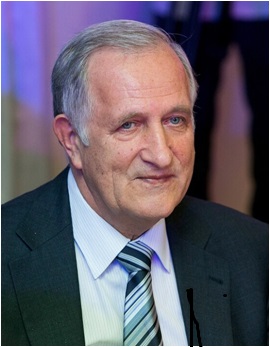
DSc, Professor, Head of the Laboratory of Molecular Genetics of Complex Hereditary Disorders, Medical and Genetic Scientific Center.
In recent years, the main scientific interests of Pr. Karpukhin are focused on structural and functional characteristics of the genes associated with predisposition to oncological disorders, their formation and development, as well as on development of new cancer therapy methods. He has developed a new drug for colon cancer treatment based on the cutting-edge concept of small interfering RNAs. He has obtained new data on the association of gene expression with cancer progression, survival and drug response.
For the first time in Russia he performed molecular and genetic investigation of the BRCA1, BRCA2, MLH1, MSH2, CDH1, АРС genes, their mutation patterns and other characteristics in familial cases of breast, ovarian, colon, stomach cancers and familial adenomatous polyposis. This research allowed to obtain new important data. In particular, new previously unknown, mutations were discovered. A BRCA1 gene mutation prevalent in breast and/or ovarian cancer was identified characteristic of Russian population.
A hypothesis of the mutation origin in Russia was proposed. Some fundamental understanding on the association between the BRCA1 and BRCA2 primary gene structure and the type of developing tumors was formed. Areas of the АРС gene where 80 % of all mutations are located were identified. In the pattern of АРС gene mutations, half are new as they weren’t found in other ethnic groups. Supposedly, many of the АРС gene mutations appeared de novo. It was shown that a significant fraction of familial stomach cancer is caused by mutations in the MLH1 and MSH2 genes.
Previously, scientific interests of Pr. Karpukhin were for a long time associated with research on structural and functional organization of human genome and its elements in normal conditions and in genetic pathologies, as well as with use of molecular diagnosis methods. He developed and characterized new genomic structural elements included in an international gene database, developed new methods to analyze genome 3D structure and created new methods of molecular diagnostics protected by 7 certificates of authorship.
The new facts underlie development of effective methods of molecular DNA diagnostics of predisposition towards certain cancers and their presence, as well as personalized therapy.



















































